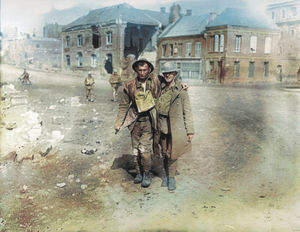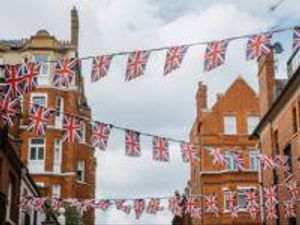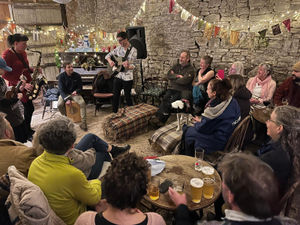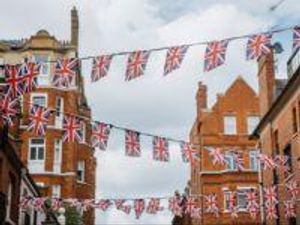The storm which nearly broke the British Army
One hundred years ago today, on March 21, 1918, the Great War of popular imagination, of mud, trenches, and barbed wire, came to a sudden and explosive end.

Across a wide front the German Army fell upon British lines in a determined all-or-nothing attack.
It was heralded by a short, but massive, artillery barrage, and was spearheaded by highly trained stormtroopers using the then novel tactic of bypassing stubbornly defended positions and penetrating deep into the back areas.
Reinforced by huge numbers transferred from the Eastern Front following the collapse of Russia, the German High Command had seen a window of opportunity to win the war before the arrival of increasing numbers of American troops could bolster the Allies.
The British Army was thrown back, fighting a desperate rearguard, and a static war in which the front lines had changed little became one of movement.
Every soldier caught up in the whirlwind had a story to tell - if they survived, of course, because although the bloodbaths of The Somme and Passchendaele have become bywords for slaughter, casualties during this last phase of the war were also huge.
The sacrifice was not in vain, as the German offensive ran out of steam. The last throw of the dice had failed.
Among those in the maelstrom was a caterer's clerk from Stokesay, near Craven Arms.
And his story is told as part of a new book by a Shropshire author which tells of the heroism and sacrifice of the 66th Territorial Division as it faced the onslaught.
Alfred Ernest Francis was serving as a medic with the 2/3 East Lancashire Field Ambulance. He wrote a history of his ambulance unit, recording the horrors of the onslaught, and the desperate work to rescue the injured and save lives under bombardment and heavy fire.
In one passage, Francis recorded the situation for medics in a dressing station behind the lines.
"Although shells were falling all round the station, the men seemed to acclimatise themselves to the danger," he recorded.
"The self-sacrificing work performed by the bearers was beyond praise."
His testimony is recorded as part of "Death of a Division" by military historian David Martin, from Shrewsbury.
“For the first time this book tells the complete story of the 66th. They are so far down the army order their history was never written,” he said.
“It’s why I chose to write the book. In the church at Passchendaele village there’s a memorial window to the 66th Division, but in fact their most important story and contribution to the Great War was this battle of March 1918 in which they were nearly wiped out and for which there is no memorial.
“The 1918 offensive particularly interested me. It differed from earlier battles because it was mostly open warfare, fought over a very large area with artillery, cavalry and tanks.
“These men who had been mill workers, railwaymen, colliers and clerks found themselves outnumbered in the front line facing the onslaught of the German army. They were steadfast. They fought bravely. They didn’t run or surrender. They got on with the job.
"‘Death of a Division’ acts as a memorial for the men of Lancashire and Britain who served in The East Lancashire Division and is a tribute to their sacrifice.”
The 66th was made up of the Territorial units of the Lancashire Fusiliers, the East Lancashire Regiment and the Manchester Regiment, with men largely recruited from industrial areas of North West England.
Francis had joined up after moving to Manchester to find work.
“Stokesay is one of my favourite little haunts and it delights me that a historical character such as Alfred Francis came from there,” said David.
“Here was a man from Shropshire who wanted better work and also wanted to be a medic in the Territorials, so had to move to Manchester, and then found himself in the maelstrom of the First World War. After that he was sufficiently interested in the history of the unit that he, like myself, became a historian of the war.
“His written manner is very humane, interested and with a desire to record the facts, without blame, although he does highlight some anti-war sentiments, he observes what his unit achieved. He was able to achieve all that a man of his social class could, and the highest rank in the army that he could, that of Sergeant.”
David is involved with the weekly World War One church service at St Chad's, Shrewsbury, and is seeking more visitors to come to this service on Wednesdays at 5pm on March 21 and March 28, both days which had high levels of casualties for Shropshire, with 53 and 158 casualties respectively caused by the German offensive of March 1918
"Death Of A Division: Eight Days In March 1918 and the Untold Story of the 66th (2/1st East Lancashire) Division" is published by Pen & Sword and costs £19.99.





